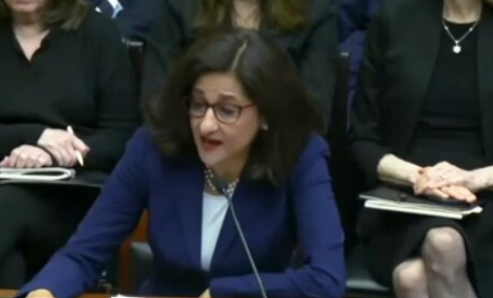As Columbia University prepares for the upcoming academic year, concerns are mounting among faculty about the potential for continued protests and unrest on campus. Following a tumultuous spring semester marked by intense demonstrations, some professors fear that the upcoming term could bring similar disruptions. The situation is further complicated by the recent resignation of university president Minouche Shafik, who has been replaced by interim president Katrina Armstrong.
Columbia University President Minouche Shafik Resigns pic.twitter.com/TvYDXYKWKo
— The Epoch Times (@EpochTimes) August 15, 2024
Last spring, protests at Columbia led to the occupation of Hamilton Hall, forcing classes online and affecting final exams and commencement. Despite efforts to address tensions through community-building initiatives and clearer guidelines, many faculty members remain apprehensive about the potential for renewed chaos.
Cliff Stein, a professor of industrial engineering, expressed deep concern over the protests, which he found intimidating and disruptive. He noted that the situation last semester made academic life difficult for many, including international scholars who were unable to access campus.
Elliot Glassman, an adjunct professor of architecture, echoed these concerns, highlighting how the protests created an uncomfortable environment for Jewish students. He criticized the university for allowing the campus to be overtaken by one-sided narratives, which he believes has negatively impacted the value of a Columbia education.
#BREAKING: Columbia University President Minouche Shafik resigned from her leadership role Wednesday less than three weeks before the Fall semester begins.
What we know👇 https://t.co/8HKh90mpxV pic.twitter.com/pkAPefdfNv
— The National Desk (@TND) August 15, 2024
Tom Hays, an assistant professor of pediatrics, shared his disappointment with the university’s response to the events of October 7th and expressed fears for student safety in the coming semester. He noted that the administration’s failure to address the situation adequately has left many feeling uneasy about what lies ahead.
The upcoming semester at Columbia is fraught with uncertainty, with faculty members hoping for stronger leadership and a more decisive approach to managing campus tensions.
Key Points:
i. Columbia University is bracing for another semester of potential protests, following a disruptive spring term.
ii. Faculty members are concerned about the impact of protests on academic life and student safety.
iii. The resignation of university president Minouche Shafik adds to the uncertainty as Katrina Armstrong steps in as interim president.
iv. Professors have criticized the university’s handling of previous protests, fearing a repeat of last semester’s chaos.
v. There are calls for stronger leadership and better enforcement of campus rules to prevent further disruptions.
Lap Fu Ip – Reprinted with permission of Whatfinger News


